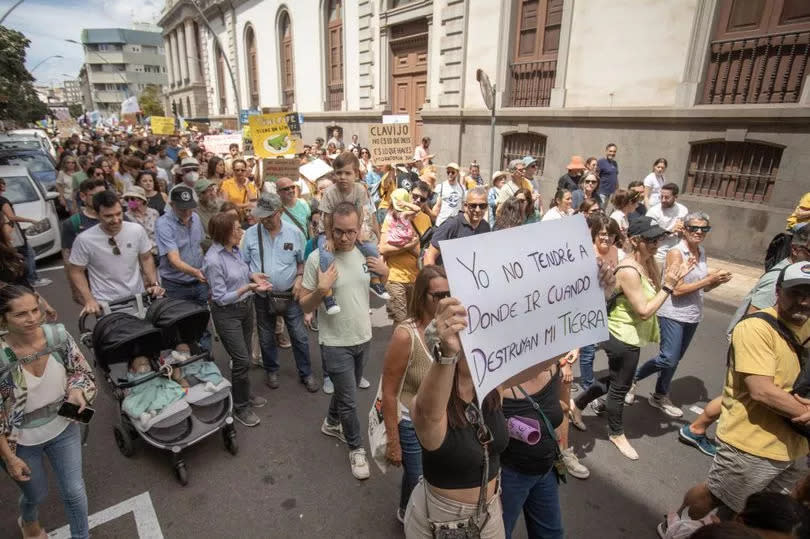New Tenerife Tourism statement after 'go home' protests put off UK holidaymakers

Tourism chiefs in Tenerife have issued a statement as it emerged that many UK tourists are reconsidering their holiday plans in the wake of massive protests. The Canary Islands have been hit with massive protests at the weekend complaining about overtourism in the area.
Thousands of people took to the streets carrying banners and some started a hunger strike calling for action. Anti-holidaymaker ‘tourists go home’ graffiti appeared and Lanzarote, Tenerife and other island locals have warned the Canary Islands “have a limit” when it comes to tourism.
In a new statement, reported by the travelgossip site Tenerife Tourism insisted it is safe for holidaymakers to visit. It said: “The Canary Islands, and Tenerife in particular, are a safe tourist destination” adding that the demonstrations on 20 April were not against tourists but the ‘tourism model’.
The protest organisers, from the campaign group Canarias se Agota – which translates as ‘Canaries sold out’ – say they’re not against tourists, but claim mass tourism is creating numerous issues, putting pressure on limited resources – including water, transport and housing.
Tenerife Tourism said it has been working ‘for years’ to move away from the mass tourism model to position the island as a destination for experience-led sustainable holidays with a ‘quality offer’ to attract higher-income tourists who want more than sun and sand holidays. It added: “The Island Council and the Regional Government of the Canary Islands are taking appropriate steps to solve the island’s problems, although these measures will not immediately solve the problems called for by society.”
The Government is planning to regulate the use of housing for tourism and introduce new quality standards, removing those from the market that don’t comply and returning them to the residential market. It has also announced plans to acquire and build more homes for social housing, and it says it is committed to plans for water desalination and the regeneration of waste water.
The Canary Islands recently declared a water emergency, along with parts of mainland Spain due to an ongoing drought, and locals say the rise in Airbnb-style lettings is pushing up housing costs and increasing poverty. A number of suggestions have been made as to new rules in the area.
Rosa Dávila, the first female president of Tenerife, proposed visitor limits. She warned: “In addition, there have to be limits to prevent tourism from overflowing.” Davila proposed a new tourism model that would charge visitors a fee to access natural spaces. She is also advocating measures to “modulate” the number of tourists arriving in Tenerife - and “study the impact of demographic growth.
She said after the mass protests: “We must analyze the exceptionalities that can be applied in a territory as fragile and limited as ours. What is clear is that Tenerife cannot be a theme park. Those who visit us have to value and respect our natural and cultural wealth, our resources, and they have to be clear about the rules for their preservation.”
President of the Canary Islands, Fernando Clavijo, previously warned that a daily cost for visitors could be on the table. While not included in current plans, Clavijo said the government is willing to look at suggestions of a three euro per night charge.
He said last Friday: “It is true that the ecotax is not included in the government program, but it is also true that we are willing to discuss it; the government will always engage in dialogue.”

 Yahoo News
Yahoo News 
